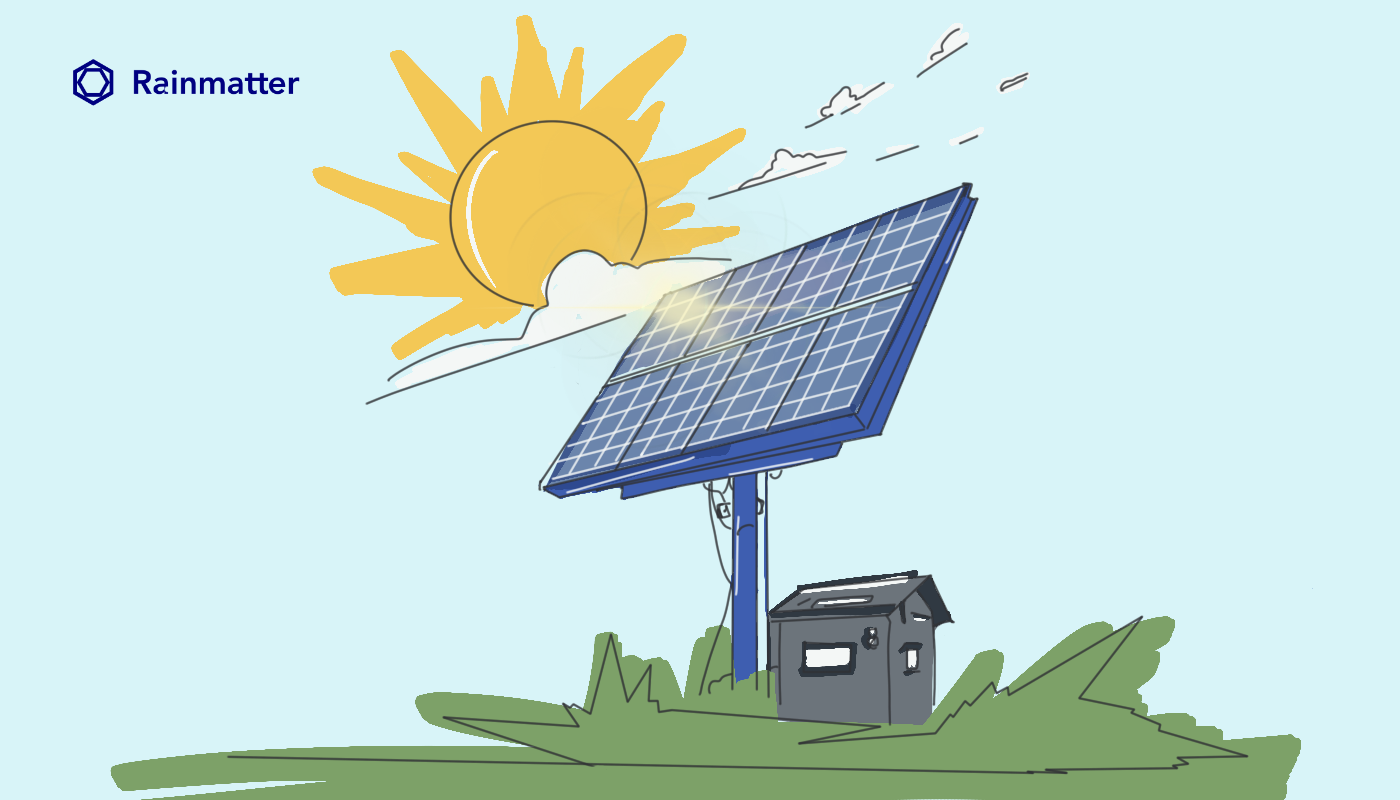
SundayGrids | Putting solar in the cloud
There’s an irony to solar energy: the people who ‘get’ it, don’t get enough sun. They either don’t own their house or live in an apartment in a city. Most likely, it’s both — that is, they are probably tenants in a high rise apartment block, with no balcony or access to the rooftop.
Two engineering graduates were ruing this problem when they asked why solar couldn’t be in the cloud. And, like many other founders trying to solve for a pain-point they faced, they roped in a third friend and went about doing just that.
SundayGrids is a start-up that combines the benefits of community, digital and gross metering, such that anyone can invest in solar, without having the space for it, or even an electricity account.
Watch our interview with its three founders on the latest Climate Conversation.
Community solar
Solar farms offer the benefits of ‘community solar’. Essentially, multiple people can come together and pay a developer to install and maintain a solar farm close to their homes. The benefits of this approach over individual solar installations is marginal, and probably only comes from the economies of scale. While popular in the US, it’s relatively rare to hear about this in India. That said, Delhi has proposed community solar recently, and it’s being discussed as a beacon of promise elsewhere too.
But finding the space is still a challenge.
Virtual solar
On the other hand, commercial and industrial (C&I) buildings have rooftops and need electricity too. Indeed they usually pay a higher tariff for power than residential. But commercial users may not have any capital to spare for a solar installation (or may have higher ROI requirements).
So SundayGrids does some nifty trading. The residential user puts in capital to ‘reserve’ capacity, i.e. some solar panels. Enough users pool their capital and get a solar farm installed on the rooftop of a commercial or industrial building. The power is sold and consumed at location itself, by the commercial user. The revenue generated gets credited to the residential investor as a credit against their electricity bill.
Since the whole process is virtual anyway, there doesn’t really need to be a link between the amount the residential user’s electricity needs and the amount they reserve. So the residential user is really an investor – who can earn more than 10 percent tax-free (check what happens when the income exceeds all bills?)

Gross and net metering
In the case of rooftop solar, the residential user is both a consumer and producer, or a ‘prosumer’. One can only ‘net off’ the power generated and put into the grid during the day against the power consumed in the evening.
However, if power is being generated on behalf of a residential producer and consumed by a commercial user, there’s a tariff arbitrage. This is what SundayGrids exploits. This is done through ‘gross metering,’ which is basically two separate meters — one for production and another for consumption.
As the founders explain in the episode, this arrangement also means that residential users can fund power generation in another part of the country, where the weather is better suited for a solar installation.
BookMyShow of solar power
The founders explain that they got into the physical installations to get the flywheel going. That is, they had to build the theatres so that there were enough shows in the market that users can book. Now that these solar installations are coming up everywhere, SundayGrids is getting them listed on their platform, where residential users can ‘reserve’ a portfolio.
On the other side of the equation, because of a partnership with BillDesk to offset electricity bills, residential users can use these credits to offset against any bill in Billdesk’s menu.
We’re constantly amazed by the solutions young graduates come up with for start-ups that address climate change.
May the sun keep shining, even when it’s raining, even when it’s night — or even when it’s Sunday.

Issue with Sunday grid is no control on service provider. They are online platform to get their cut. I have invested in trial basis for their thane project. It generates low credit in summer. Inverter is down since 1 month but they don\’t have control over waree service provider. It is difficult to put your trust for 15 years.
I also check chatgpt calculator and real return is 9%.
– GST cost
-No return of principal at the time of maturity.
I wish I know it earlier.
Obviously you’re trading at standard returns like SIP. They make huge margins off you
How do I get electricity bill credit if my meter is centrally managed by builder or when it\’s a prepaid meter?